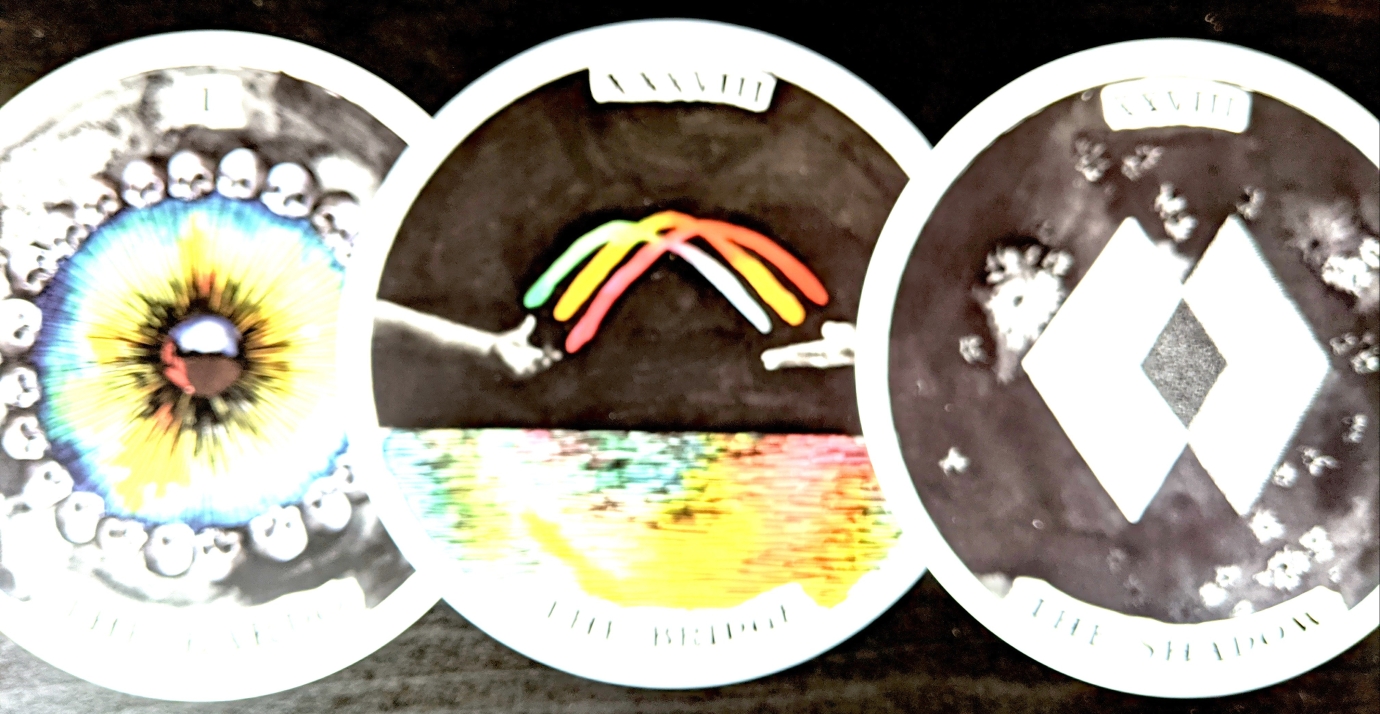Daily writing practice is great, but what happens when you don’t have an idea? Or there are too many ideas competing to get on the page and your brain locks up? A lot of writers turn to prompts: a word, a phrase, sometimes an entire scenario that can help you get started. This makes it easy to jump on that early momentum and keep going.
I like cards. I don’t know where the obsession started, but the ritual of mixing and drawing and turning over cards is powerful for me. I have several tarot decks, a set of moon cards, and round archetype cards; each provides a set of images, stories in their own right, that can be used for inspiration.
One card can be sufficient for a writing prompt, but on days where I have a little more time and energy it can be fun to take several cards and weave their meanings together into a larger story. The images are rich enough that we can leave the guidebooks aside and focus instead on what is happening in each picture. If you can’t see anything coherent, try moving cards around. Be as simple or complex as you like. As soon as you feel any sort of idea moving in your mind, start writing and see where it takes you.
If you are a seasoned card reader, use the meanings you have learned to your advantage. Lean into any personal connections you have with individual cards, let associations carry you away, and get as much of it onto the page as you can. Practice is allowed to be messy! I have to fight my overwhelming urge to scratch neat lines of cursive into my notebook, but my scratches and misspellings tell me where I had the most energy, where my ideas outpaced my pen.
No cards? No problem! There are endless prompts available online, and communities on social media that offer regular writing challenges, so you can practice while fostering connections and friendships. I’ve also found another great bit of advice in Writing Down the Bones: Goldberg suggests taking down any interesting ideas you have for prompts and keeping them in your writing notebook, to give yourself a jumping-off point if you find yourself blanking down the road.
Another good idea is to commit to a specific time limit. It doesn’t have to be much, you can start with a few minutes to put yourself at ease. This encourages you to put a bit of effort into it; without a time limit, we might get out a few sentences, decide it’s too hard, and go make a cup of tea. Better yet, bring the cup of tea to your writing space, set a timer (on your phone, web browser, or get a cheap one to keep on your desk), and don’t stop until it goes off. When it does, you can stop to consider the writing, or you can take a short break and set another timer for yourself. Repeat as long as you have time and energy, find out what time limit you can commit to and how frequently.
The important thing is to write and see what comes out. A lot of my notebook lately has musings on the past (I am working on autobiographical fiction), complaints of boredom, and one interesting daydream about a plum. That might become something later. If you write nothing but FUCKFUCKFUCK or I don’t know what I’m doing, there is still value in it! You have conquered the blank page and transferred words from your mind to the physical world, and there is magic in that.

